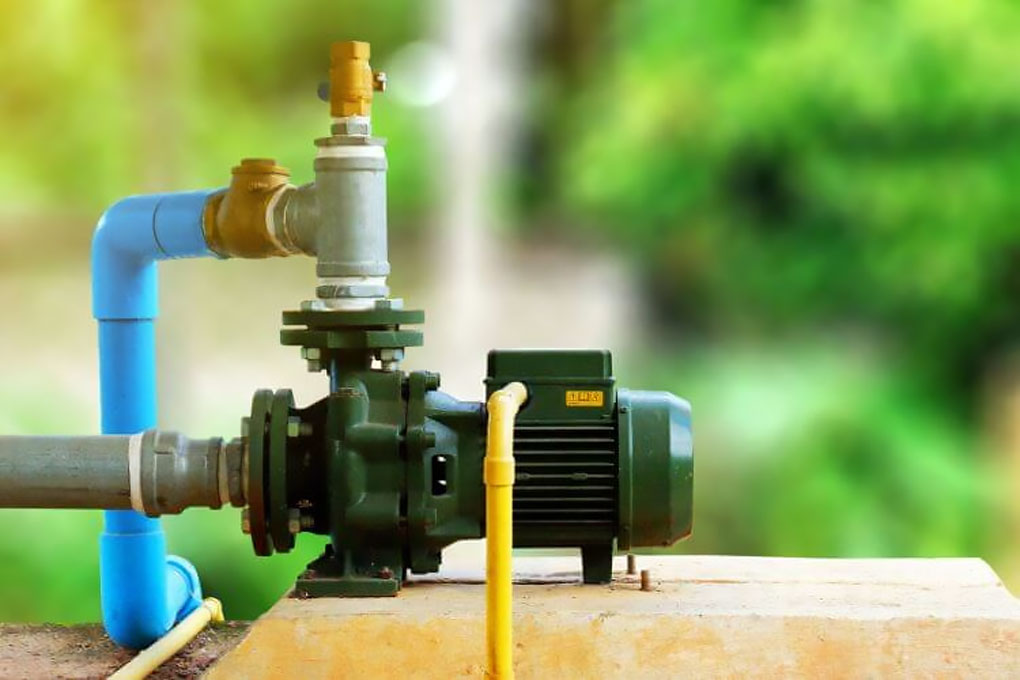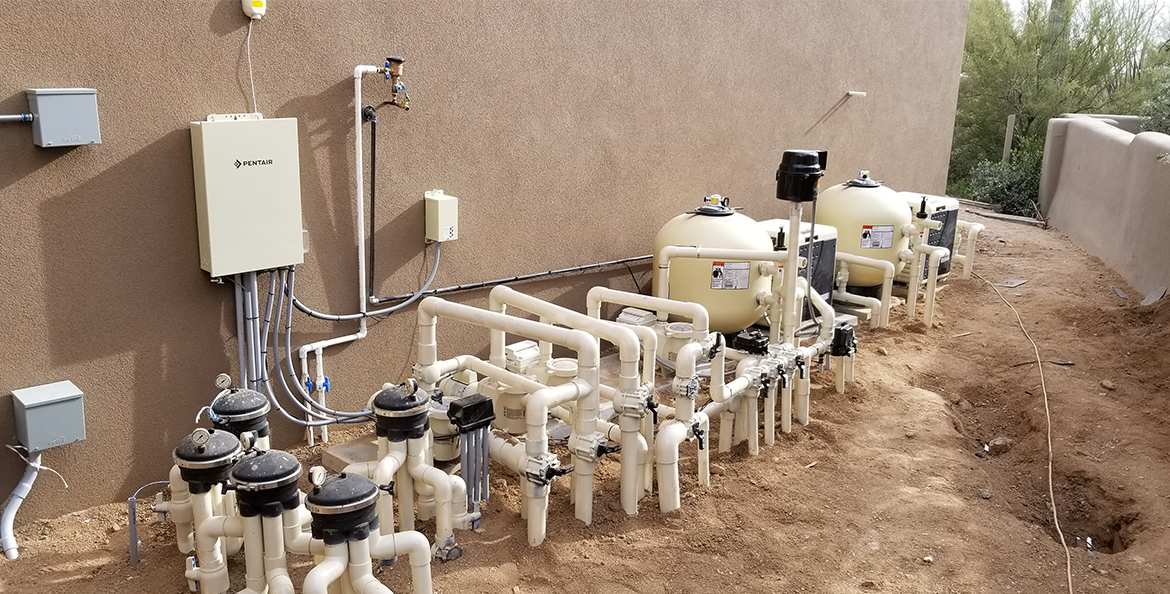Recognizing the Key Parts of Effective Water Filtering Equipments

Value of Water Purification Solution
Water purification systems play a critical function in ensuring accessibility to risk-free and clean drinking water by properly removing pollutants and impurities. These systems are crucial in addressing the growing concerns over water high quality and the prospective health risks connected with taking in polluted water. By making use of different purification mechanisms such as reverse osmosis, activated carbon, and UV sterilization, water purification systems can efficiently eliminate damaging substances like germs, infections, heavy metals, and chemicals from the water supply.
Additionally, water filtration systems assist to improve the preference and odor of water by removing chlorine, sediments, and other toxins that can impact its top quality. Well Pump Replacement. This enhancement in water quality not only makes it more tasty yet also motivates individuals to consume an adequate quantity of water daily, promoting far better hydration and general health and wellness
Kinds of Filtration Components

Physical filters are created to physically stress out impurities from the water. These filters can be constructed from products like ceramic, carbon, or even sand, and they function by capturing bits bigger than the filter's pores as water passes through.
Chemical filters use various chemical procedures to get rid of pollutants from the water. Instances include activated carbon filters, which adsorb pollutants, and turn around osmosis membrane layers, which use stress to different contaminants from the water.
Biological filters use living organisms like bacteria or algae to damage down natural matter and contaminants in the water. These filters are typically utilized in wastewater treatment plants or all-natural water filtration systems.
Comprehending the different kinds of filtration parts is critical for picking the most appropriate water purification system for details filtration demands.
Function of Sediment Filters
Debris filters play an important function in water filtering systems by properly capturing solid particles put on hold in site link the water. These filters are typically the initial line of protection in a filtration system, getting rid of larger bits such as sand, silt, dirt, and corrosion prior to the water relocates with finer filtration stages. By trapping these debris, the filters stop them from getting to downstream elements, thus expanding the life-span and effectiveness of the entire system.
The function of debris filters is essential in preserving water top quality and securing sensitive tools from damage created by particles. Furthermore, by getting rid of noticeable bits, sediment filters enhance the quality and taste of the water. On a regular basis replacing or cleaning debris filters is essential to ensure optimal efficiency. Overlooking this upkeep can result in clogging, lowered water flow, and compromised filtration effectiveness. Generally, debris filters are essential elements that add substantially to the performance of water filtering systems.
Function of Turned On Carbon Filters
Playing an important function in water filtering systems, triggered carbon filters are critical in eliminating pollutants and pollutants from the water supply. As water passes with the filter, the triggered carbon holds and draws in onto the impurities, guaranteeing that the water that comes out on the various other side is cleaner and much safer for usage.
Activated carbon filters are highly reliable at enhancing the preference and smell of water by reducing chemicals that can influence its high quality. Due to their flexibility and integrity, triggered carbon filters are a crucial component in making certain that water is cleansed to view website the highest requirements before this hyperlink getting to consumers.
Comprehending Reverse Osmosis Systems
Reverse osmosis systems are advanced water filtering systems that use a sophisticated process to eliminate contaminants and pollutants from drinking water. These systems function by using pressure to the water, forcing it via a semi-permeable membrane layer.
One secret advantage of reverse osmosis systems is their capability to get rid of a vast array of impurities, including heavy metals, dissolved microorganisms, solids, and infections. This makes them extremely efficient in enhancing the general top quality and safety and security of drinking water. Additionally, reverse osmosis systems are relatively low-maintenance and can be installed under the sink or in a central filtration system, offering convenient accessibility to tidy water throughout the family. On the whole, recognizing just how reverse osmosis systems function can aid people make notified choices regarding their water filtering needs.
Final Thought
In final thought, effective water purification systems are important for ensuring secure and clean alcohol consumption water. By comprehending the feature and role of each part, individuals can make enlightened decisions when picking a water filtration system.
Water purification systems play an important duty in making sure accessibility to safe and clean alcohol consumption water by efficiently getting rid of contaminations and pollutants. By making use of various filtering devices such as reverse osmosis, activated carbon, and UV sanitation, water purification systems can efficiently remove hazardous compounds like microorganisms, viruses, heavy metals, and chemicals from the water supply.
Debris filters play a crucial function in water purification systems by effectively catching strong fragments suspended in the water (Water Softeners).Playing a critical duty in water filtration systems, activated carbon filters are critical in getting rid of contaminations and contaminants from the water supply.Reverse osmosis systems are advanced water filtration systems that utilize an advanced procedure to eliminate impurities and contaminations from alcohol consumption water